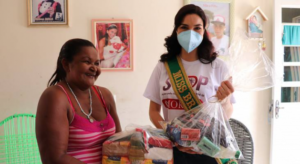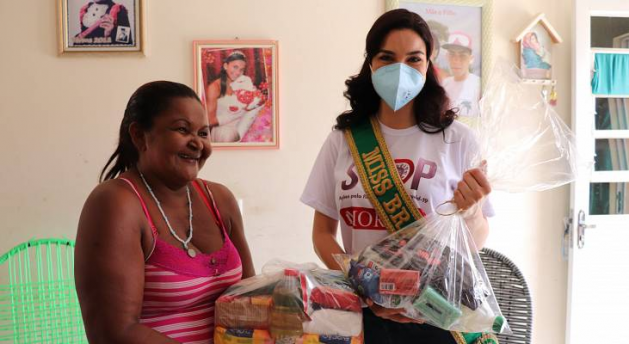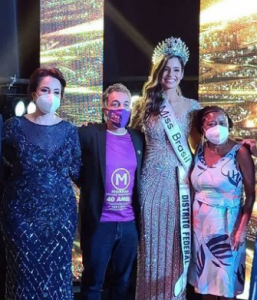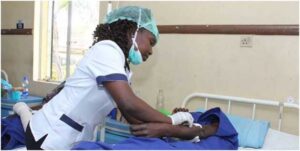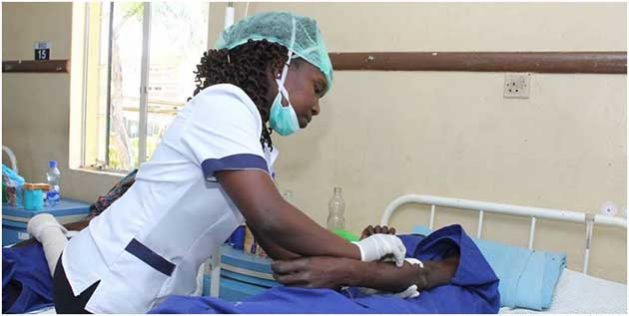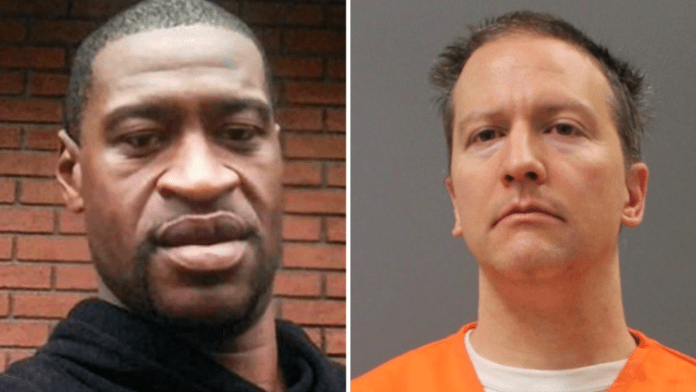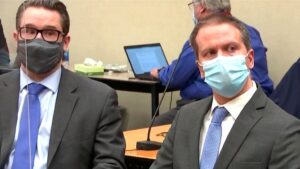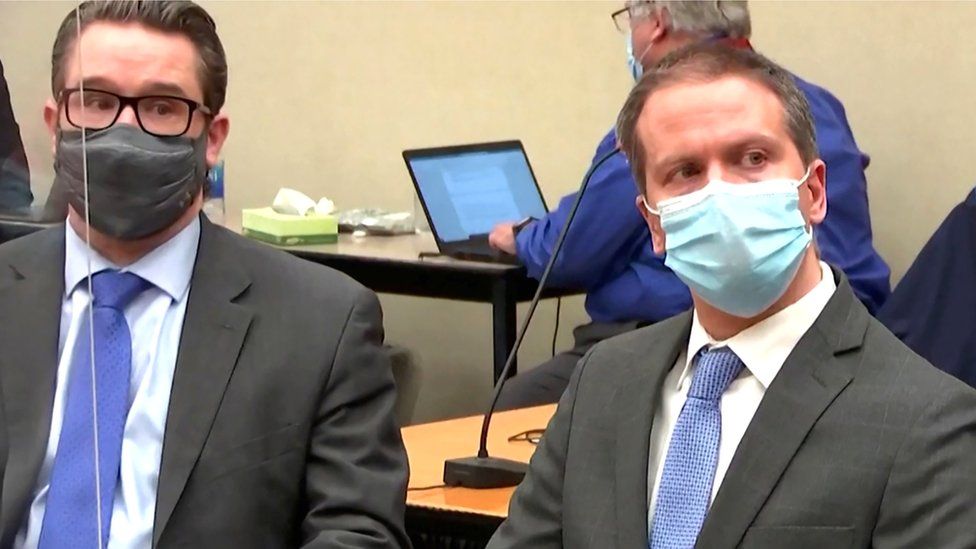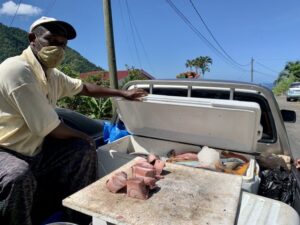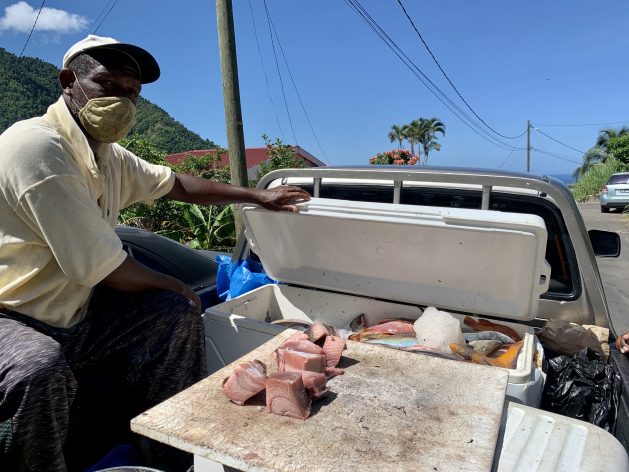
Honoring the state’s best and brightest under age 40 for the 25th year.

This year Georgia Trend is celebrating 25 years of honoring the state’s best and brightest with our 40 Under 40. And this year, like the others, the winners leave us awed and inspired.
As we continue to battle COVID-19 in the state, many in this group of young leaders are working to keep our economy afloat and our citizens healthy. These outstanding people come from every corner of Georgia and represent the nonprofit, healthcare and legal sectors, large corporations and startup entrepreneurial ventures. As important as their day jobs are, however, they also find time to volunteer and give back to strengthen and grow the communities around them.
This year’s 40 Under 40 were selected by the Georgia Trend staff from nominations provided by readers throughout the state who know them well. We’re proud to share their stories.
The profiles were written by Brian Lee, Michele Cohen Marill, Charlotte Norsworthy, Patty Rasmussen and Randy Southerland. – The Editors
Kimberly Barnes 39
CEO and Founder
Might Be Vegan
Atlanta
Kimberly Barnes was looking for a new challenge. As she became vegan in an effort to stave off diet-related preventable illnesses common in the South, she realized she’d found it. She created Might Be Vegan, which works with food brands to educate people around plant-based eating. She set up what she says is the world’s largest vegan tailgate at the 2019 Super Bowl LIII in Atlanta, serving 1,500 people.
She also created Food Love, a unique plant-based hunger relief effort dedicated to getting fresh fruits and vegetables, among other items, delivered to the doorsteps of those experiencing food insecurity.
This included “hosting a 100% plant-based food event where we basically just gave food away,” she says. “And the reasoning was because we wanted to introduce people to plant-based eating.” – RS
Lattisha Bilbrew 35
Orthopedic Surgeon
Resurgens Orthopaedics
Stone Mountain
Lattisha Bilbrew was a young girl at her grandmother’s hospital bedside when she decided she was going to be a doctor someday. She didn’t like the tone of the doctors and nurses, and neither did her grandmother, who spit out her medicine after they left.
When people told Bilbrew her dreams weren’t realistic, she became more determined. She navigated a daunting 14-year journey through college, medical school and specialty training, becoming the first African-American woman to train as a fellow in hand and upper extremity surgery at the University of Florida.
Now an orthopedic surgeon, Bilbrew supports the community through annual back-to-school and toy drives, and her passion is mentoring others. She works with students from elementary to medical school. “The next step is to make sure other people can realize their dreams,” she says. – MCM
Amber Brantley 32
Assistant Solicitor General
Office of the Solicitor General
Augusta
As an assistant in the solicitor general’s office, Amber Brantley is a force for bringing justice to both victims and offenders.
“You can always make the recommendations you think will be better for that person, the community and the victims,” she says.
She is the prosecutor with the newly formed Domestic Violence Accountability Court in Richmond County. Since its formation, the court has reduced repetitive domestic violence offenses by providing enhanced offender supervision and accountability and offender conflict resolution alternatives.
The program has a 90% success rate, according to Brantley.
She is active in the community as regional vice president of the Georgia Association of Black Women Attorneys. She has led efforts to meet community needs such as raising funds to purchase caps and gowns for graduating seniors. – RS
Alton “A.J.” Brooks Jr. 37
Assistant Vice President, Clinical Operations
Wellstar Atlanta Medical Center
Atlanta
A.J. Brooks originally planned to be a physician, but he found another way to drive quality care through healthcare administration.
He has managed over 80 surgery clinics across Wellstar Medical Group, one of the largest medical groups in the southeast. Most recently he took on running clinical operations for Wellstar Atlanta Medical Center.
He has also served the community through work with the Center for Family Resources, a nonprofit organization that supports families experiencing hardship.
“We take individuals who come from tough situations and set them up for success,” says Brooks.
He was 2020 chair of the Cobb County Chamber’s Young Professionals committee. This group organizes community initiatives including food drives. He works with the Health Career Academy to introduce students to careers in medicine, and he was a member of the LEAD Atlanta class of 2017. – RS
Bess Butler Brunson 28
401(k) Investment Advisor
The Fiduciary Group
Savannah
Bess Butler Brunson grew up going to the offices of The Fiduciary Group, an investment firm started by her grandfather more than 50 years ago. She always knew she would join the family business because she finds financial health just as important as physical and mental health.
“Saving and investing was always a conversation around the dinner table, and I love that feeling of giving clients the confidence they need to accomplish their financial goals,” she says.
Her grandmother inspired her community service at a young age, introducing her to the interpreter program at the Davenport House. Her service has expanded as she’s stepped up as co-president of the Historic Savannah Foundation’s 13th Colony, an organization of young professionals centered around historic preservation, as well as a number of other organizations. – CN
Ethan Calhoun 30
Assistant Director of Regional Planning
Northwest Georgia Regional Commission
Chatsworth
Ethan Calhoun’s favorite part of his job is helping small towns all over the state achieve their economic development and planning goals. At the Northwest Georgia Regional Commission, he is able to reach Georgia cities that have big goals but limited resources.
His work speaks to his commitment to helping communities thrive, as he serves as vice president for the Georgia Association of Zoning Administrators, as a member of the Whitfield County Historical Preservation Committee and as a site interpreter for the Chief Vann House State Historic Site, to name a few.
Serving communities as small as 75 people allows Calhoun to “really make a difference in the community that otherwise wouldn’t happen,” he says. He loves watching a community grow knowing that he had a small hand in that progress, he says. – CN
Kigwana Cherry 35
Construction Manager
NIKA Solutions
Co-founder
Pop-Up Augusta
Augusta
Tagged the “Secret Mayor of Augusta” by his friends, Kigwana Cherry is a Tuskegee University-educated construction engineer and a contractor with NIKA Solutions. He’s also an entrepreneur-creative, conceiving ideas like Pop-Up Augusta, exclusive themed entertainment experiences, in 2017.
“The idea is to share a meal, ignite conversation and inspire change,” Cherry says. “I had friends saying there was nothing to do in Augusta. I decided to create events to prove them wrong.”
The pop-ups shut down in 2020 but are gradually starting again. During the pandemic, Cherry discovered a talent for urban farming and teaching others to grow food. He also gave away more than 250 plants from his own backyard. A classically trained opera singer, Cherry is a staunch arts advocate and member of the Greater Augusta Black Chamber of Commerce. – PR
Kristoff Cohran 28
Founder and CEO
Mission 3E Inc.
Program Administrator
Georgia South Psychiatry Residency Program
Colquitt Regional Medical Center
Moultrie
A student who dropped out of public speaking class becomes a public speaker. A person uninterested in healthcare becomes a psychiatry residency program coordinator. A boy who lost his dad early in life becomes a father figure to many. That’s Kristoff Cohran, and the common motivator is his “strong passion for helping others and belief that my life’s purpose is to be a catalyst for a better, brighter tomorrow.”
Mission 3E, Cohran’s nonprofit, offers character and leadership development programming designed to engage, enlighten and empower young adults to elevate in school, career and life. That includes teaching financial literacy, promoting civic responsibility and community engagement.
“What’s most satisfying about my work is helping young adults create a life plan that is clear, concise and attainable,” Cohran says. “Our goal is to make this world a better place, one person at a time.” – BL
Charlotte Davis 29
Deputy Director of Governmental Relations
Georgia Municipal Association
Atlanta
Charlotte Davis spends her days lobbying in the state Capitol on behalf of more than 500 Georgia city governments and her nights volunteering as a track coach.
At the Georgia Municipal Association, Davis addresses the needs of local governing bodies, advocating for initiatives and bettering relationships between local and state interests. She serves on GMA’s Cares Committee, which helps disadvantaged youth in the state.
Her service extends outside of work, too. Davis coaches female athletes at Dunwoody High School and the Atlanta Track Club and she also mentors athletes at Berry College, where she was a track athlete. The overall goal, she says, is to help athletes plan for success.
“My passion is helping young women, particularly with athletic backgrounds, transition into a very successful career. Because that was me,” she says. – CN
Jason Dozier 38
Atlanta Director, Program Operations and Evaluation
Hire Heroes USA
Atlanta
Jason Dozier is using the skills and knowledge he acquired in the military to ease the transition of other veterans into civilian life with Hire Heroes USA. This included helping 12,000 vets and their spouses find jobs last year alone, he says.
After moving to Southwest Atlanta, he became “an advocate and community organizer in my community, working to help folks fight against displacement, and making sure that we had a seat at the table whenever development decisions were being made that impacted our community.”
To make that happen, he has worked with the Neighborhood Planning Unit and was vice president of the Mechanicsville Civic Association and the Turner Field Community Benefits Coalition.
A regular commuter, he advocated for the creation of two new bus routes in South Atlanta to make transit easier for residents. – RS
Daniel Farr 33
Senior ISV Manager
Salesforce
Chamblee
Daniel Farr spent most of his career in the automotive industry before deciding to make the jump to tech.
“I wanted to get into an industry whose principles were around innovation, because that meant that they were not hesitant to take chances and disrupt the status quo,” he says. “I wanted to get into an industry that I was able to bring my best self to work every day.”
This desire led him to Salesforce, where he rose swiftly to lead the Heroku Elements marketplace, a source for supporting app development. In 2021, he was responsible for Heroku’s $52 million in gross revenue.
He is also a leader in volunteer programs aimed at helping the homeless, co-founding the nonprofit Project H.E.L.P. ATL. It provides aid to those without shelter ranging from food to hygiene kits. The goal is creating partnerships that help homeless people transition from the street to self-sufficiency. – RS
Andy Gaines 39
General Manager
The Earl and Rachel Smith Strand Theatre
Marietta
The play’s the thing for Andy Gaines. The general manager of The Earl and Rachel Smith Strand Theatre in Marietta knows the arts can both inspire a community and fuel it economically.
“Helping The Strand succeed in those two areas is what is so endlessly satisfying about what I do,” he says. “Working here is like coming to play in a sandbox and make castles everyday – an absolute joy.”
The University of Georgia alum, who also studied the 2,000+ year-old art form of Sanskrit theatre in its Indian birthplace, takes that spirit of sharing and caring with him wherever he goes. Recognized as the Kiwanis Club of Marietta 2020 Kiwanian of the Year, Gaines heads the West Side Elementary K-Kids Club and serves on The Walker School’s Patrons of the Arts Board, the Marietta Arts Council and the Marietta Welcome Center’s Board of Directors. – BL
Kevin Gillespie 39
President and Chief Ideas Man
Red Beard Restaurants
Owner, Chef, Cookbook Author, Speaker
Atlanta
In 2009, Chef Kevin Gillespie achieved culinary success at Woodfire Grill
and fame on Bravo’s Top Chef. Since then, he’s started a company, opened four restaurants (Gunshow, Revival, Gamechanger and Cold Beer), and written several cookbooks. For natural introvert Gillespie, cooking is communication.
“I realized that I needed cooking, and to cook for strangers, in order to be able to play an active role in our society because my natural inclination is to be shut off from people,” he says.
Gillespie founded the Defend Southern Food Foundation in 2019 to ensure local farmers and producers would always have a market for their product. During the past 18 months, his foundation prepared and distributed approximately 500,000 meals to families through the Atlanta Public Schools. – PR
Hayden Hancock 38
Commercial Agent
Houston & Associates Insurance
Nashville
Leaders rise from adversity, and Hayden Hancock is living proof. During the onset of the pandemic, the chair of the Berrien County Chamber of Commerce board recognized that the county was not equipped to communicate vital information to residents and businesses. So he spearheaded the formation of a COVID-19 task force.
“Together we began a series of live weekly ‘press conferences’ to present a united and calming voice and quickly created a centralized website,” says Hancock, who also helped facilitate a three-county relief effort to distribute more than 5,000 food boxes to families.
Inspired to give to his community and powered by coffee, the energetic Hancock won the chamber’s 2020 Community Service Award. He also serves on several boards, including school, church, hospital and Rotary Club. – BL
Robert Hendrix 39
Licensed Professional Counselor
Owner
The C.O.O.L. Program
Union City
Robert Hendrix has dedicated his life to service since launching The C.O.O.L. Program, where he works with the Clayton County Public Schools to provide mental health support to students and their families.
Hendrix says that growing up in a low-income neighborhood without a father inspired him to give crucial guidance to young men with similar upbringing. When he’s not working in Clayton County, Hendrix mentors young Black men and women in the Metro Atlanta area. He sees it as his responsibility to show young people that they can achieve success.
“I see myself in these kids, and I understand that all you have to do is tell them that they can make it, give them the resources to make it and they will make it,” Hendrix says. – CN
Miranda Kyle 37
Arts and Culture Program Manager
Atlanta Beltline
Atlanta
A sculptor herself, Miranda Kyle understood the difficulties emerging sculptors have finding exhibition space.
“I’ve always been the type of person who thought, ‘if it doesn’t exist, let me make it exist,’” she says.
At the Atlanta BeltLine, Kyle oversees the South’s largest linear gallery space and temporary public art exhibit. Ensuring the collection reflects the communities is something she is passionate about.
“Art on the BeltLine is a temporary exhibition,” she says. “Feedback is incredibly important. Our shared public spaces do not belong to any one person, it’s supposed to be a shared vision.”
A member of the Americans for the Arts Public Art Network Council, Kyle also works with advocacy groups like the South River Forest Coalition, working to preserve greenspace in Fulton and DeKalb counties, and the Stone Mountain Action Coalition, attempting to reclaim Stone Mountain Park from its legacy as a Confederate memorial. – PR
Jessica Lamb 36
Founder and Executive Director
Atlanta Redemption Ink
Atlanta
Jessica Lamb will never forget the first transformation she enabled. A young woman felt vulnerable and shamed by the branding a sex trafficker had placed on her neck. In 2017, a tattoo artist turned it into a beautiful purple flower with a butterfly – an opening to a new future.
Lamb, also a survivor, had her own coverup in 2016 and wanted to help others remove the markings of a former life. “I had a passion to see someone experience freedom the way I did,” she says.
Since then, Atlanta Redemption Ink has worked with tattoo shops around Georgia and nationally to remove or cover up tattoos from sex trafficking, gang symbols and marks from self-harm or addiction. More than 375 individuals have received the transformation. Atlanta Redemption Ink also provides trauma-informed counseling, life coaching and educational services. – MCM
John Lanier 35
Executive Director
Ray C. Anderson Foundation
Atlanta
John Lanier took the bar exam two weeks before his grandfather, businessman-environmentalist Ray C. Anderson, died, leaving most of his estate to the family foundation that bears his name and promotes environmental stewardship.
Lanier worked several years at Sutherland, Asbill & Brennan (now Eversheds Sutherland) before he was hired to run the foundation and advance his grandfather’s legacy.
The foundation funds research for ideas like sustainable highways and biomimicry (the practice of learning from and mimicking nature to solve human challenges) and in 2020 launched Drawdown Georgia, an initiative to decrease the state’s carbon footprint by at least 35% by 2030.
“If we can do that here, in a Southern state, and show climate change is not a political issue, then we can show what’s possible,” Lanier says.
Lanier served on the board of the Southface Institute for seven years, an organization working to build sustainable workplaces, homes and communities. – PR
Davia Lassiter 39
Lecturer
University and Technical College Systems of Georgia
Atlanta
Davia Lassiter has always seen herself a teacher.
This fall she left a high-level communications post at the Georgia Department of Community Affairs to become a faculty member at three Metro Atlanta colleges – University of West Georgia, Kennesaw State University and Atlanta Technical College.
“Teaching was always the end goal for me,” she says. “Throughout my career, I was able to teach in a different way, not necessarily in the classroom, but from doing public speaking. I traveled the country… to teach about marketing strategy.”
As a member of Alpha Kappa Alpha sorority, she has worked on a wide range of service projects in the community. One of her greatest passions is students. She is a mentor to 4th and 5th grade students at Hickory Hills Elementary in Marietta. – RS
Tionya Lawrence 36
Family Nurse Practitioner
Athens Neighborhood Health Center
Athens
Tionya Lawrence wanted to give her patients more than basic care.
“As a nurse practitioner we have the authority to diagnose, evaluate, treat and prescribe medicine,” she says. “You want to prevent patients from ending up in the hospital. We fill the gap in primary care.”
She works in a neighborhood health center founded 50 years ago by four women in a small trailer that has since expanded to a main building and two other locations in Athens. She is also a Vot-ER fellow, a nonpartisan leadership development program for healthcare workers looking to increase voter participation by helping patients register to vote.
“I ask my patients, ‘Do you smoke or drink? Are you registered to vote?’” she says. “’We focus on your physical health your mental health – let’s take a look at your civic health and see how you’re doing.’” – PR
Constance Mack 38
Director
Global Transaction Services
Bank of America
Atlanta
Bank of America executive Constance Mack was attending an event for “Neighborhood Builders,” a bank- sponsored program supporting local nonprofits, when she met the president of Atlanta Technical College. Soon she was touring the school, observing its cutting-edge training and becoming a “builder” herself.
Today, she is board chair of the Atlanta Technical College Foundation. She helps raise money for gap funding to assist students who are in danger of dropping out for financial reasons. Meeting the students and hearing their stories has been inspiring, Mack says. “It’s a really amazing student body. I have never met a student that I wasn’t impressed with,” she says.
Mack also chairs the Women’s Employee Network for Bank of America in Atlanta, a mentoring opportunity. “We can see so many dynamic female leaders” at Bank of America, she says. “We want to keep that going.” – MCM
Brittany Marshall 35
Behavioral Scientist
Centers for Disease Control and Prevention
Atlanta
Brittany Marshall worked for 160 days without a day off to support CDC’s COVID-19 response, researching attitudes and behaviors around hand hygiene, cleaning and disinfection. It was exhausting, but also a passionate mission. “The pandemic definitely strengthened my commitment to public health,” she says.
Marshall also holds leadership roles with the American Public Health Association (APHA) and the Urban League of Greater Atlanta Young Professionals. She is the youngest person ever elected to the APHA executive board. In 2020 she was named outstanding member of the year for the national Urban League’s Southern region.
Today, Marshall is working on HIV prevention, continues on the APHA board and serves as president of her Urban League chapter. But if she’s needed, she says she’s ready to return to the pandemic response. – MCM
Juan Mejia 28
President and Founder
JCM Ventures
Senior Brokerage Partner
DTSpade
Atlanta
Juan Mejia devotes his life to his community, whether it’s through his work or volunteering, his donations or spending. He helps businesses and nonprofits grow by providing strategic advice through JCM Ventures, a consulting company, and as a commercial real estate broker with DTSpade. Recently, he secured space for two Latin American consulates.
The only child of a widowed mother, Mejia immigrated from Colombia. As a teenager, the Metro Atlanta nonprofit Ser Familia helped him cope with the loss of his father. Mejia has since volunteered for more than 15 years for the organization, which provides workshops, counseling, advocacy and other services.
He also supports the Georgia Hispanic Chamber of Commerce, the Latino Community Fund, the Atlanta Ballet and the American Jewish Committee. “I always say that I am a product of community organizers,” he says. “They instilled in me the passion for giving back.” – MCM
Jenna Mobley 34
Education Director
Small Bites Adventure Club
Community Farmers Markets
Georgia Organics
Atlanta
Jenna Mobley initially ventured into the garden with her first-graders to teach them about George Washington Carver, the famous Black agricultural scientist and inventor. The children loved growing, cooking, and tasting radishes and snap peas – while they learned principles of science, math, social studies and language arts. (They wrote persuasive essays asking for radishes to be served in the cafeteria.)
“It’s been 12 years now, and I’m still pursuing what this might look like, to teach kids through food,” Mobley says.
Mobley won the Presidential Innovation Award for Environmental Educators in 2015, which opened up new opportunities. Now she trains teachers through food-related nonprofits, including Small Bites Adventure Club, Community Farmers Markets and Georgia Organics. And she’s still rooting for the radishes. “We never got the radishes in the school cafeteria, but we’re working on it,” she says. – MCM
Raveeta Addison Moore 38
Project Manager
TSYS/Global Payments
Columbus
Service has always been a passion for Raveeta Addison Moore. She began her career with Big Brothers/Big Sisters of the Chattahoochee Valley in Columbus.
“I’ve always had a love for serving the community,” says Moore, who now works as a project manager with TSYS/Global Payments, ensuring projects for credit card clients come in on time and under budget.
She continues to serve her community through work with the United Way, as a member of the United Way Women United Board.
Among her passions are the Ronald McDonald House, where she volunteers in honor of her late brother. She chairs the Character Breakfast fundraiser for the Junior League, has been active with the Urban League Young Professionals and is a member of the Leadership Georgia class of 2020-2021. – RS
Paul Nam 36
Associate General Counsel
Senior Director
InComm
Atlanta
When Paul Nam moved from New York to Atlanta to go to John Marshall Law School, he lacked a network of friends or mentors to help him adjust. “I told myself, ‘Once I get into a place where I’m a lawyer and can help others, I will,’” he says.
Nam fulfilled that promise. He founded a chapter of the Asian Law Students’ Association and later advised law students and young lawyers through the Korean American Bar Association of Georgia and the Georgia Asian Pacific American Bar Association (GAPABA).
He is now community service chair for GAPABA and serves on the Leadership Council for the Atlanta Volunteer Lawyers Foundation. When he’s not negotiating complex contracts for InComm, a global payment processing company, he provides legal services to nonprofit organizations and helps people in need. “I want to reach out as much as I can,” he says. – MCM
Ashley Nealy 33
Assistant Director, Support Services
U.S. Treasury Inspector General for Tax Administration
Founder and Chief Creative Officer
Mindly Maven LLC
Atlanta
Ashley Nealy didn’t set out to become an influencer. She wanted to make sure that African Americans were represented in COVID-19 vaccine trials, so she signed up for the Pfizer study.
After reassuring doubtful family and friends about vaccine safety, she ended up telling her story on the local news. Even after some pushback – one online commenter called her a “guinea pig” – she still spoke out, with appearances on national TV and webinars. “If I could even influence one person, that was good enough for me,” she says.
Her reach is far bigger than that. A TikTok video she posted to explain common vaccine effects received 1.6 million views in two days. She launched a company that sells “Vaxxed” wristbands, shirts, masks and buttons. When boosters are needed, she’s ready to sign up – and to keep promoting the value of vaccines. – MCM
Phi Nguyen 36
Litigation Director
Asian Americans Advancing Justice-Atlanta
Atlanta
Giving a voice to the voiceless and shining a light on human rights, that’s what civil rights attorney Phi Nguyen does. That could mean anything from simply driving a Vietnamese grandma to the polls to major social justice cases and campaigns.
“The most satisfying part about my job is when I can experience moments of shared joy during visits with people who are incarcerated,” she says. “To show up in my full humanity and remind someone of their full humanity in a place like a prison feels like one of the most powerful gifts I can give another person.”
The stakes are high for the historically excluded communities she serves: When Nguyen and her team win, a person is reunited with their family after long periods of incarceration or thousands of voters get better access to the ballot box. – BL
Phillip Olaleye 36
Executive Director
Next Generation Men & Women
Atlanta
Phillip Olaleye’s nonprofit focuses on students in the most underserved, economically disadvantaged schools and communities in Metro Atlanta, specifically in the Fulton County and Atlanta Public School Systems.
Olaleye and his team of mentors and teachers look for the forgotten students in need of support systems and enrichment opportunities. Gender-specific cohorts of students meet with a teacher and mentor twice a week, hopefully for all four years of high school.
“There’s power in tangible experiences,” says Olaleye. “Talent is universal but opportunity is not. We stand in that gap and activate community resources in Atlanta to plug into our students, to help them get excited about their futures.”
Olaleye is also the leader of the Organized Neighbors of Summerhill, working to preserve and protect the quickly gentrifying historic intown neighborhood, the first freed slave and Jewish post-Civil War settlement. – PR
Christopher Perlera 35
Senior Director of Strategic Partnerships and Messaging
Georgia Division of Family and Children Services (DFCS)
Chamblee
Son of El Salvadoran immigrants, Chris Perlera carries inevitable “immigrant child baggage” – the need for autonomy, to be involved and let other people know they can do the same. It’s why he ran for state representative at age 26 and why he’s passionate about civic engagement. He worked in the office of the secretary of state, ran his own consulting firm and now primarily serves immigrant communities at DFCS.
“My role is external-facing and very specific,” he says. “I come in to cover community and cultural gaps for DFCS; this is predominantly expressed with culturally specific communities, Hispanic, AAPI [Asian Americans and Pacific Islanders], and Black refugees and diasporas.”
He also serves on the advisory board of the Hispanic Mentoring Priority, a student success program in Gwinnett County, and the advocacy committee of the Latin American Association. – PR
Deborah Rodríguez Garcia 32
Educational Manager
Humanitarian Programs
Sesame Workshop
Hinesville
Across the globe in Bangladesh, Rohingya refugee children find comfort and early learning through a version of Sesame Street with Muppets in traditional garb, speaking the Rohingya language. The culturally appropriate curriculum is shaped by Deborah Rodríguez Garcia, education manager of humanitarian programs for Sesame Workshop.
Rodríguez Garcia aims to help children become more resilient through play-based learning. “I look at the world from the perspective of a four-year-old,” she says. Recently, she created messages to help children stay healthy during the pandemic.
She previously worked as an educational specialist with the Peace Corps in Nicaragua and with a U.S. State Department program in Malawi. Her community service revolves around Hermandad de Sigma Iota Alpha Incorporada; at Georgia Southern University, she co-founded the first Georgia chapter of the Latina-oriented sorority. – MCM
Cara Simmons 39
Director, Student Success and Advising Center
University of Georgia (UGA)
Adjunct Instructor and Course Coordinator
UGA College of Family and Consumer Sciences
Athens
Quitman native Cara Simmons didn’t plan to attend UGA, but there she earned bachelor’s, master’s and doctorate degrees.
Her love of the university and students became a career. She teaches courses she helped develop in the College of Family and Consumer Sciences and supports and advises students, helping them become “the best version of themselves.”
“I’ve heard it said, ‘lift as you climb,’” Simmons says. “It’s important to bring others up as you move along.”
Simmons found volunteering at the Athens Diaper Bank “unexpectedly fulfilling. Having access to diapers means having access to education, to a job and to so many things that are needed for people to feel like they have a life,” she says. – PR
Alena Smith 37
Human Resources Business Partner
Accenture Strategy & Consulting
Author and Founder
Trust Your Strength
Powder Springs
Earning her college degree was a pivotal moment in Alena Smith’s life, one that motivates her to support entry-level analysts through her role at Accenture. Smith credits mentorship as the foundation of her career success and says she’s passionate about doing the same for others.
But perhaps Smith’s greatest accomplishment comes from the mentorship she gives fellow mothers through her nonprofit, Trust Your Strength. The organization provides resources to babies (and their families) who were born prematurely and spend time in neonatal intensive care units. She founded it after both of her sons were born prematurely, her youngest spending nearly a year in the NICU.
“The mental support for the parents, I felt, was lacking,” she says. “We need them to know that we understand the journey, but they need someone to lean on too.” – CN
Ralph C. Staffins III 38
President and CEO
Brunswick-Golden Isles Chamber of Commerce
Brunswick
Wherever he’s worked – Thomson, Newton County, and now Brunswick and the Golden Isles – Ralph Staffins has built a reputation for helping businesses succeed.
“It starts with the local business climate,” he says. “You have to build on solid rock so businesses can flourish and want to locate in your community.”
Taking over one of the state’s best-run chambers, Staffins immediately created a communications director position.
“Our economy is the regional leader,” he says. “We need to talk not just to our members but to the entire business community.”
In 2020, Staffins served as chair of the Georgia Association of Chamber of Commerce Executives and is serving an additional year due to the pandemic. Passionate about workforce education, Staffins serves on the boards of directors at the Coastal Pines Technical College and the Golden Isles College and Career Academy Foundation. – PR
Mary-Kate Starkel 37
Vice President of Development
redefinED Atlanta
Scottdale
With a desire to serve children and education and experience in fundraising, Mary Kate Starkel found her niche at redefinED Atlanta, a nonprofit that partners with Atlanta Public Schools to ensure the city becomes a place where every student can get a quality public education.
“We can provide grants to incubate, innovate and scale things that are really working in the district and use some of the funds and relationships we have to influence policy and shift the way things are done,” says Starkel.
RedefinED teaches parents to advocate on behalf of their children and local schools, backing them up with grants – this year about $5 million will be reinvested into APS.
Since 2004, Starkel has volunteered in various capacities at Camp Horizon, a summer camp and year-round support for kids in foster care, ages eight through 23.
“They are massively changing the trajectory of children’s lives,” she says. – PR
Randell Trammell 39
Founder and CEO
Georgia Center for Civic Engagement
Cartersville
Randell Trammell has loved civics since middle school thanks in part to his involvement in Y-Clubs, a community service group teaching about government through the Youth Assembly and Model UN programs of the State YMCA of Georgia (not affiliated with the more well-known YMCA).
After college, Trammel became the program director of the State Y, eventually becoming executive director. The Center for Civic Engagement (CCE) was founded in 2017 as a complementary organization but by 2020, it was time for the organizations to merge.
“Our mission at CCE is simple,” he says. “To educate and equip students to become informed and active citizens. We are straight down the middle. We teach the process.”
Trammell is helping other states set up similar civics education initiatives. And in 2021 he helped develop the Georgia Civics Renewal Act, nonpartisan legislation to enact a Georgia Commission on Civics Education. – PR
Rachel Hollar Umana 31
Founder and Executive Director
Bike Walk Macon
Macon
If you cross Columbus Street at Appleton Avenue in Macon, your feet may skip across a painted keyboard or stride on colorful swirls. Artist-painted crosswalks catch the attention of
drivers and slow them down – just one visible way that Macon is becoming bike- and pedestrian-friendly, thanks to the work of Rachel Hollar Umana, founder and executive director of Bike Walk Macon.
Umana started in 2015 with a desire to encourage commuting by bike and a $5,000 grant as an 8 80 Cities’ Emerging City Champions fellow. Today, Bike Walk Macon offers year-round events, including Open Streets Macon, when some neighborhood streets are closed to cars and reimagined as places to play, walk or bike.
Perhaps most importantly, Umana brings the voice of pedestrians and bicyclists to Macon-area transportation planning. “We don’t want our streets to be built only for cars,” she says. – MCM
Tommy Valentine 38
Executive Director
Historic Athens
Athens
Athens native and community activist Tommy Valentine went looking for a place to help and found Historic Athens, the 53-year-old organization and protector of historic buildings, neighborhoods and heritage, at what he calls an exciting crossroads.
“I’m fiercely loyal to Athens,” he says. “The city also has a history that is complex and sometimes difficult. We have to try to determine how we simultaneously celebrate, conserve and confront that history.”
Noting that it’s hard to conserve without celebrating, Valentine introduced Historic Athens Porchfest in 2019. The outdoor concert series went virtual in 2020 but will be live again this October.
And since Historic Athens relies so much on the volunteer wherewithal of others, Valentine says he “pays it forward by serving other area community groups and emerging leaders as a volunteer, ally and mentor.” – PR
Allison Wilkinson 37
Director of Payroll Services
Georgia College
Founder
Queen of Bags Initiative
Sandersville
As an adoptive mother, Allison Wilkinson knew her son could have been in the foster care system where many children lack essential supplies. That led her to launch The Queen of Bags Initiative.
“It breaks my heart when kids entering foster care are given a trash bag to hold their belongings,” says the tireless volunteer who also leads Georgia College’s payroll department. “That’s why my nonprofit provides new book bags filled with a teddy bear, blanket, hygiene kit, coloring book, crayons, school supplies, socks and more.”
With the help of friends, churches and others, The Queen of Bags – the name is a nod to the beauty pageants she’s entered – has provided much-needed supplies to foster children from Georgia to California. The highlight for Wilkinson is her family’s involvement, including her husband and two sons becoming master bag stuffers. – BL
Jeff Williams 37
Business Development Manager
Conditioned Air Systems
Gainesville
Jeff Williams and his wife faced the worst any parent could endure when their young son died. Out of tragedy came a way to honor his life while serving the community. They founded Joy for Justus, a community initiative to encourage random acts of kindness during the week of his birthday.
A business development role with Conditioned Air Systems also allows him to serve the community. He developed an apprenticeship program with Hall County Schools where students can gain practical experience and training at the company before graduating.
“That’s so valuable to the next generation of kids,” says Williams. “In introducing them to this work, they realize that this is a big need, and they can have a great career.”
During the pandemic, he has also volunteered with the South Hall Rotary to deliver more than 30,000 pounds of food to people in need. – RS

